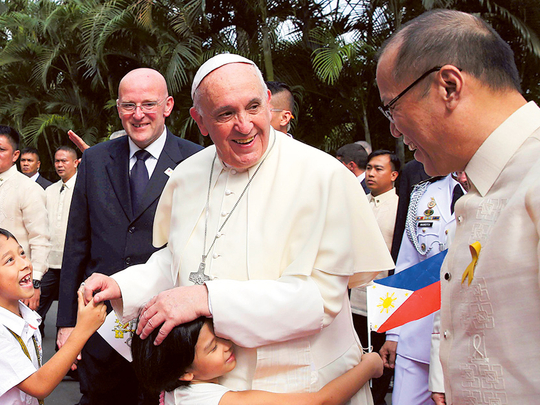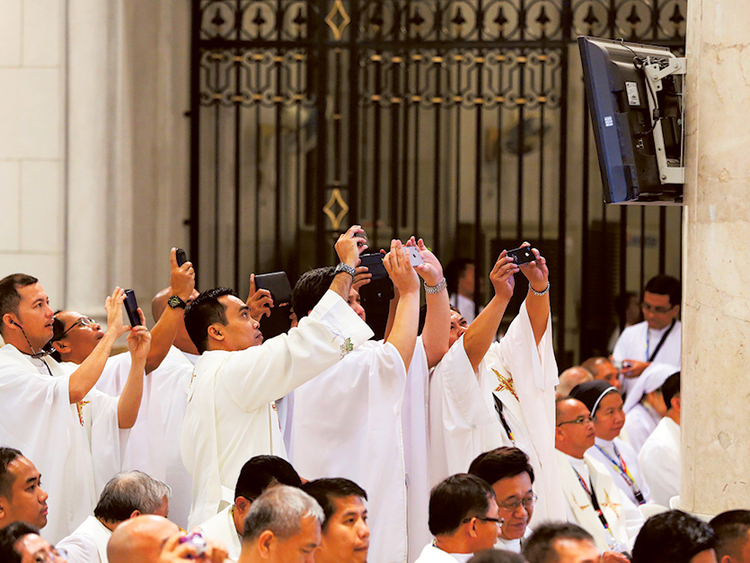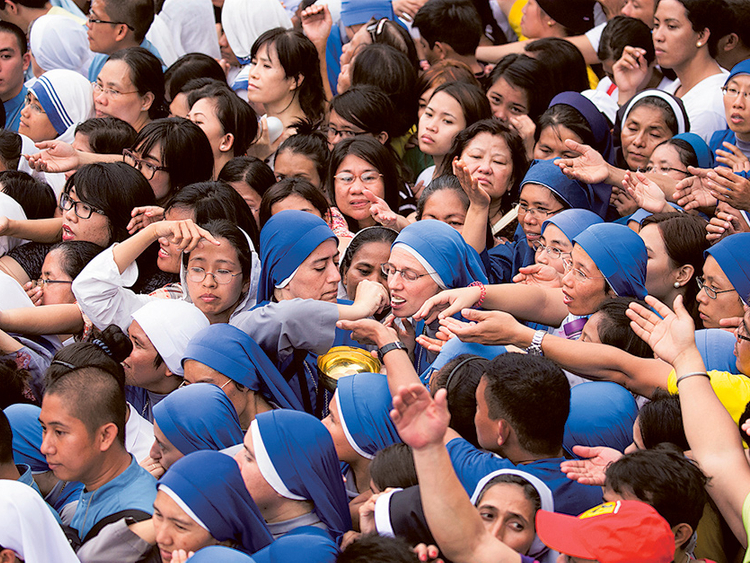
Manila: Pope Francis praised 500 years of Catholicism in the Philippines and the country’s importance to the Vatican’s influence in Asia, but he called on the government to end corruption in politics.
Speaking in English at Malacanang, the presidential palace, Pope Francis called on leaders to ensure social reform for the poor and to protect the family as a unit of society, including the unborn, women, overseas workers.
He also encouraged interfaith dialogue and peace among warring parties.
The Catholic leader centred on the cancer of corruption in Philippine society and shamed politicians when he said, “As many voices in your nation have pointed out, it is now, more than ever, necessary that political leaders be outstanding for honesty, integrity, and commitment to the common good.”
The Philippines has been hit by several high profile scandals in recent times.
In July 2014, the Supreme Court ruled that Aquino’s creation in early 2011 of a controversial fund over which he had control — the Disbursement Acceleration Programme (DAP) — was unconstitutional.
DAP was funded by savings from line cabinets for future disbursement. Aquino disbursed part of it to lawmakers after the Senate impeached Supreme Court Justice Renato Corona last December 2011.
Critics dubbed Aquino “pork barrel king” because of the DAP.
In November 2013, the apex court ruled as unconstitutional the annual allotment of development funds worth P200 million (Dh16.6 million) to a senator and P75 million (Dh6.25 million) to a congressman.
The lawmakers were accused of siphoning the funds through fake community development projects and bogus NGOs to enrich themselves.
Ending corruption is the start of encouraging a pro-poor sentiment, the pope said, adding, “The Bishops of the Philippines have asked that this year be set aside as the ‘Year of the Poor’.
“The great biblical tradition enjoins on all peoples the duty to hear the voice of the poor.”
Calling for more steps to encourage a pro-poor sentiment in the Philippines, Pope Francis said, “Reforming the social structures which perpetuate poverty and the exclusion of the poor first requires a conversion of mind and heart. It bids us break the bonds of injustice and oppression which give rise to glaring, and indeed scandalous, social inequalities.”
Making himself one example, the pope said, “This visit is meant to express my closeness to our brothers and sisters who endured the suffering, loss and devastation caused by Typhoon Yolanda (Haiyan in central Philippines in November 2013).”
Poor families in central Philippines, a region that also suffered a 7.2 magnitude earthquake in October 2013, attracted sincere assistance because their poverty symbolised faith, the pope said.
“I have admired the heroic strength, faith and resilience demonstrated by so many Filipinos in the face of this natural disaster and so many others. Those virtues, rooted not least in the hope and solidarity instilled by Christian faith, gave rise to an outpouring of goodness and generosity, especially on the part of so many of the young.”
The magical turn of events in central Philippines in late 2013 was a pro-poor sentiment in action, the pope said, adding, “In that moment, countless people came to the aid of their neighbours in need — creating networks of mutual help and working for the common good.”
“This example of solidarity in the work of rebuilding teaches us an important lesson (about aiming for the common good instead of selfishness abetted by corruption),” he said.
Protect families
A structural support for the family also creates a pro-poor culture, the pope said, adding, “It is in the family that children are trained in sound values, high ideals and genuine concern for others.”
“A highlight of my visit will be my meetings with families and with young people here in Manila,” he said.
He met poor families in Manila’s Mall of Asia on Friday afternoon. He will have lunch with poor people and survivors of natural calamities in Leyte, at the residence of the Archbishop of Palo, Leyte on Saturday.
“Like all God’s gifts, the family can also be disfigured and destroyed. It needs our support,” he also warned.
Making a subtle dig at President Benigno Aquino, who signed a law in 2012 that allows government to subsidise a family planning programme for the poor, the pope said, “We know how difficult it is for our democracies today to preserve and defend such basic human values as respect for the rights of conscience and religious freedom, and respect for the inalienable right to life, beginning with that of the unborn and extending to that of the elderly and infirm.”
The Catholic Church insists on the use of natural family planning, but lawmakers claimed this could not stem the 2.2 per cent annual growth in the country’s birth rate.
Calling for more support to families whose parents work overseas, the pope said, “I would also mention the oft-neglected yet real contribution of Filipinos of the diaspora to the life and welfare of the societies in which they live.”
Ten million Overseas Filipino Workers (OFWs) are based in more than 200 countries. Their average annual remittance of $26.5 billion represents six per cent of Philippines’ GDP.
Noting the success of the Philippine government and the 37-year old Moro Islamic Liberation Front in forging, after 17 years of negotiations, a pro-autonomy peace settlement in early 2014, the pope said, “I express my trust that the progress made in bringing peace to the south will result in just solutions in accord with the nation’s founding principles and respect of the inalienable rights of all, including the indigenous peoples and religious minorities.”
Sources told Gulf News the pope could be instrumental in the resumption of formal peace talks between the Philippine government and the 46-year old Communist Party of the Philippines and its armed wing, the New People’s Army (CPP-NPA), which began negotiating in 1992.














